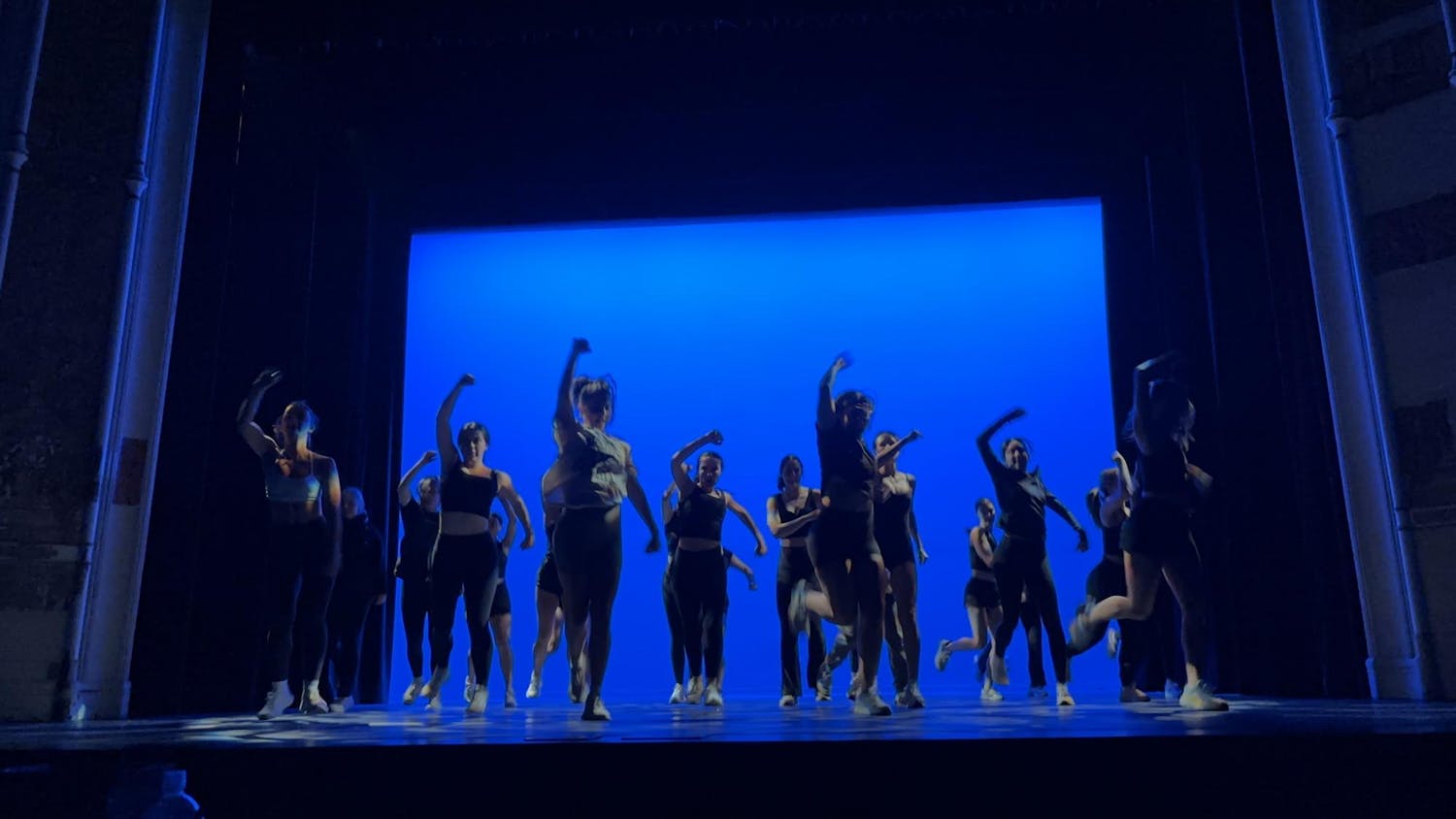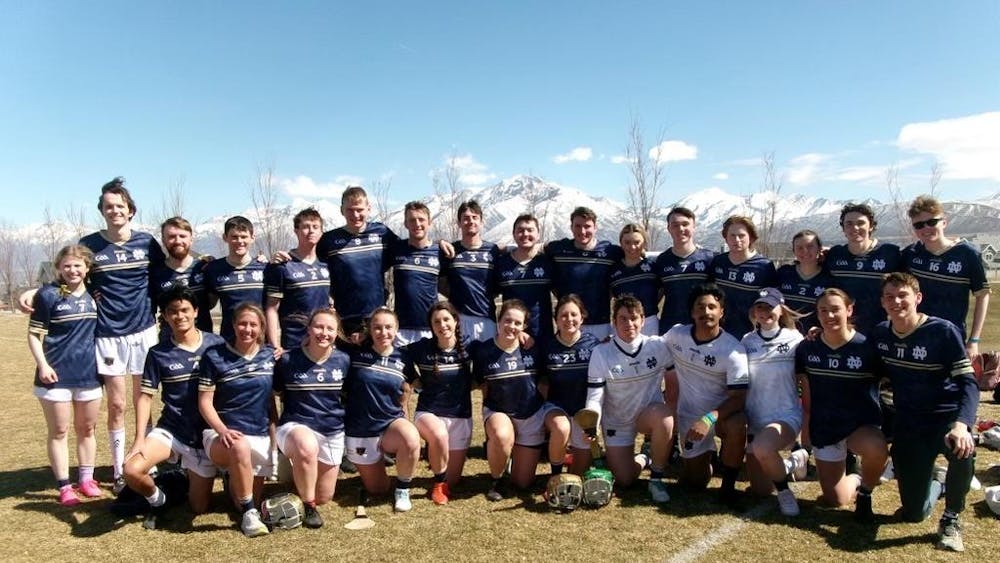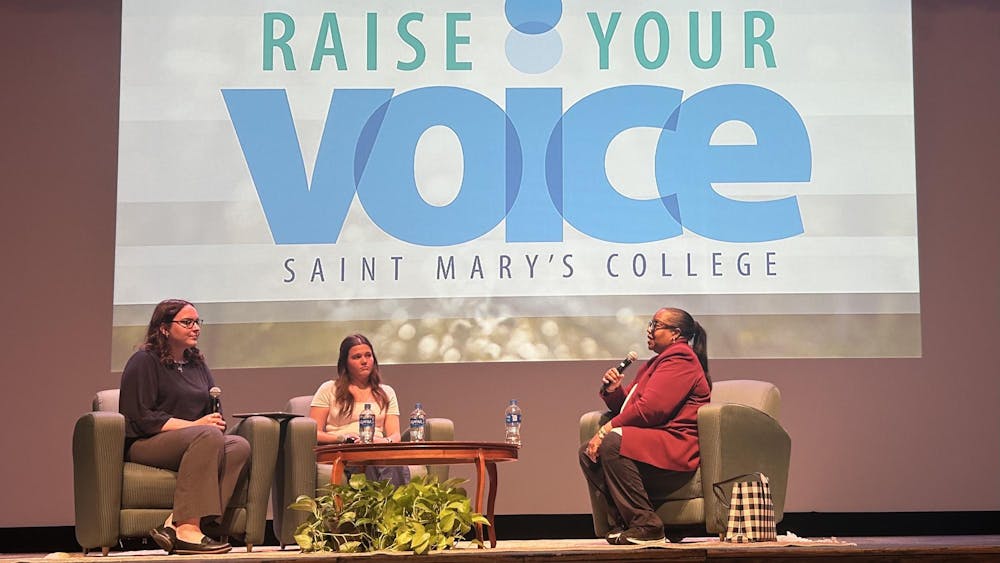In Friday’s installment of the Higgins Labor Program's (HLP) Labor Cafe discussions, members of the Notre Dame community gathered in the Geddes Hall Coffee House to discuss the supply chains of Notre Dame licensees Students from the Center for Social Concerns Fall 2016 Human Trafficking Seminar delivered a presentation on the the topic titled “Exploring the Risk of Forced Labor Within the Supply Chains of Notre Dame Licensees.”
Dan Graff, director of the HLP, said Labor Cafe events enable attendees to foster dialogue about pertinent social issues.
“The Labor Cafe is an ongoing vehicle for discussion on contemporary labor questions,” Graff said. “It’s most of the time just a discussion-based convening, where we decide ahead of time that someone’s interested in talking about a particular issue, and they facilitate the discussion.”
Seniors John Nolan and Michelle Kim and sophomores Maggie Feighery, Joseph Laski and Zoe Walker shared research they conducted about Notre Dame’s supply chains last semester as their final project for the Center for Social Concerns Fall 2016 Human Trafficking Seminar.
Feighery said the University policies in place lessen the risk of unethical labor practices in the supply chains of Notre Dame licensees.
“We do have a code of conduct for our licensees that we expect them to adhere to,” Feighery said. “We also have a freedom of association policy. We don’t allow our licensees to make products in countries that don’t allow workers to unionize. There are nine countries on that list — among them is China. We’re a member of the Fair Labor Association [FLA] , and our licensees are also members of the Fair Labor Association.”
Despite these policies, as well as regulations mandating supply chain transparency, determining whether or not a product was partially made with unethical or forced labor can be an arduous task, Feighery said.
“Supply chains are incredibly difficult to trace these days,” Feighery said. “A lot of that has to do with the rapid expansion of globalization. Even though information is spreading more easily, it’s not keeping up with how large the supply chain is getting and the different aspects of it. It can have as many as eleven parts, from where the cotton is sourced to where it ends in your hand. There’s been an increase in forced labor, which we’re seeing a lot globally.”
Laski said several companies — such as Patagonia and Apple — have taken proactive measures to combat forced labor in the manufacturing of their products.
“The main thing we learned from this is even the best companies have trouble getting deep into their supply chains,” Laski said.













